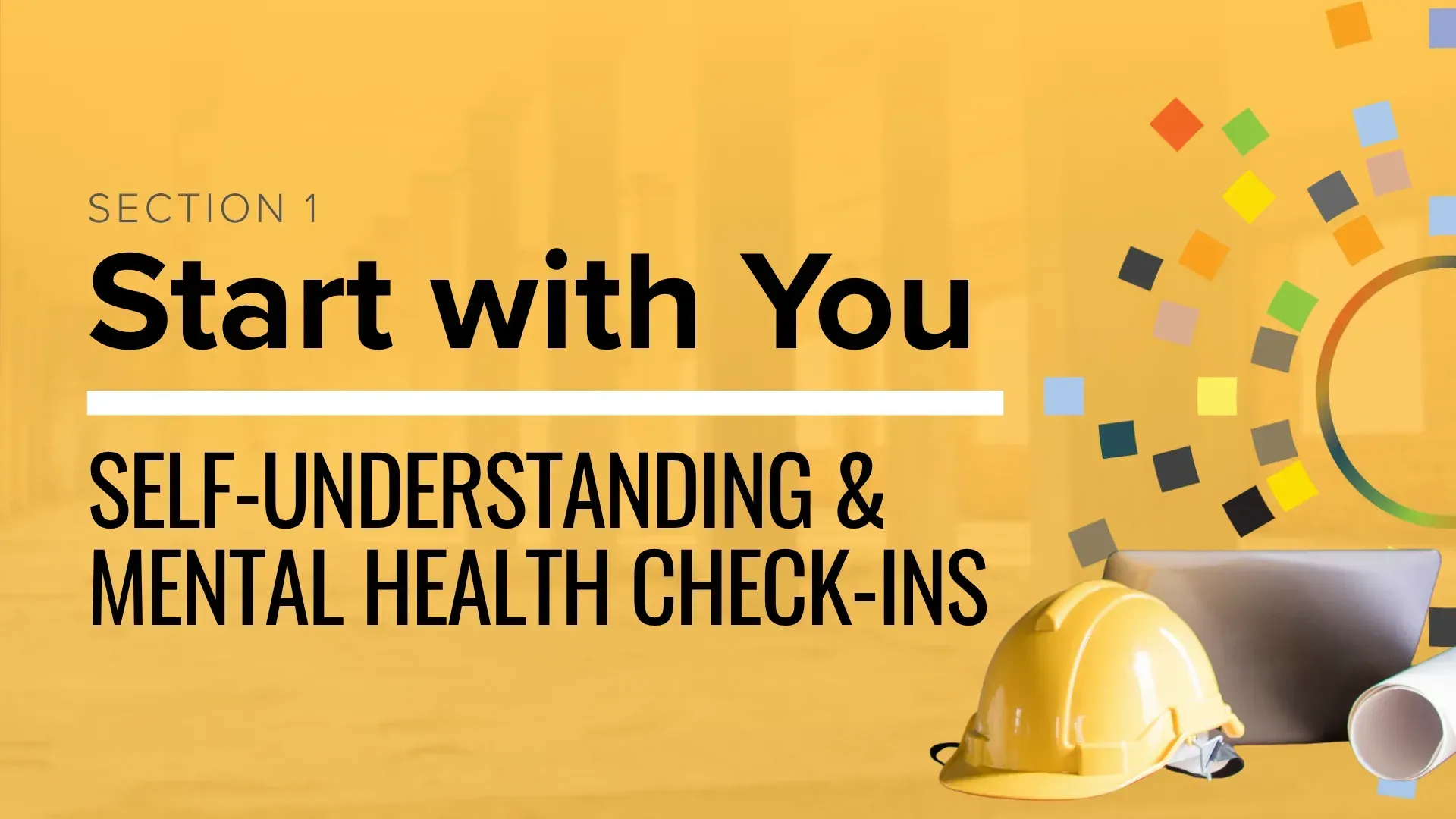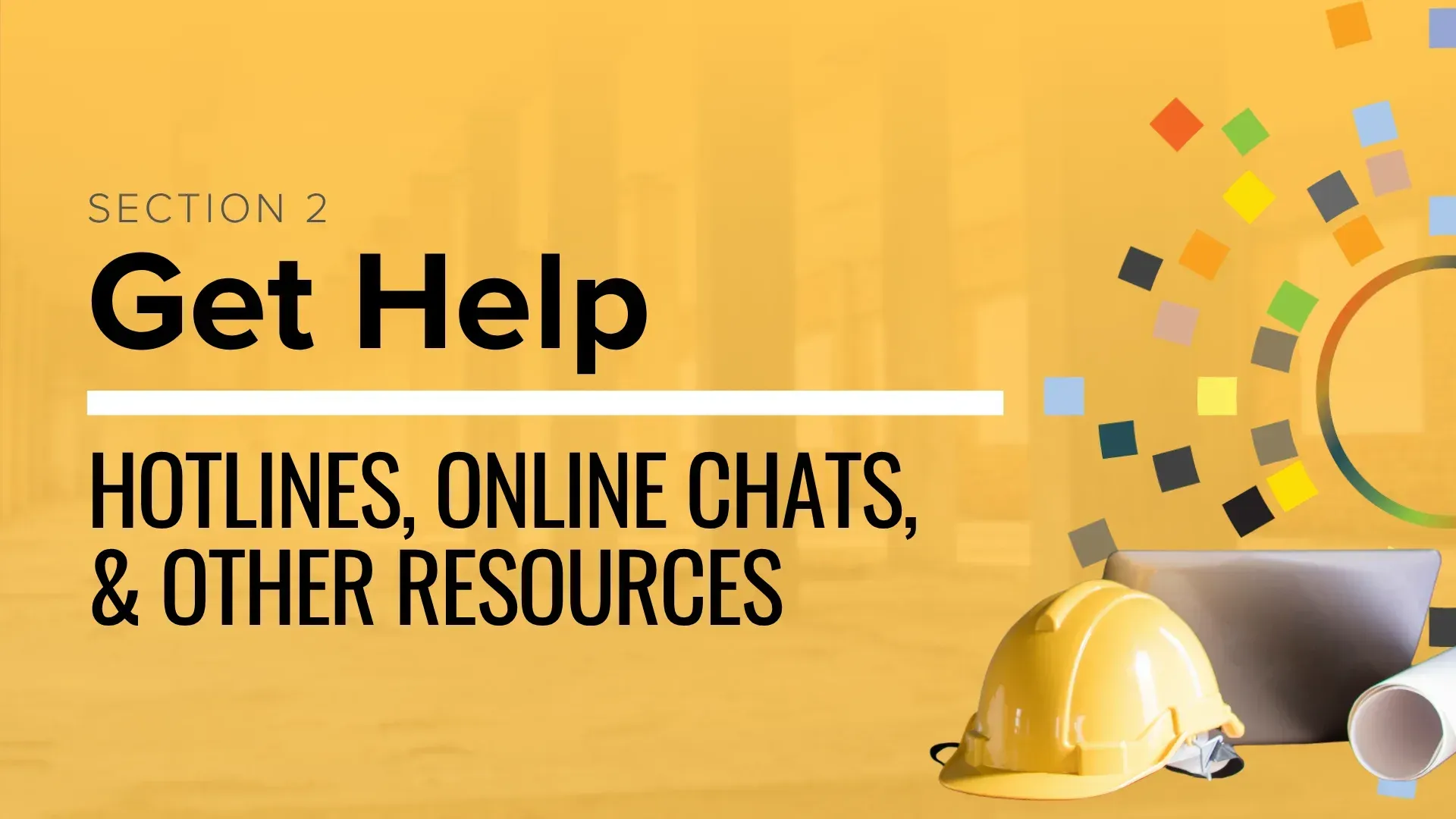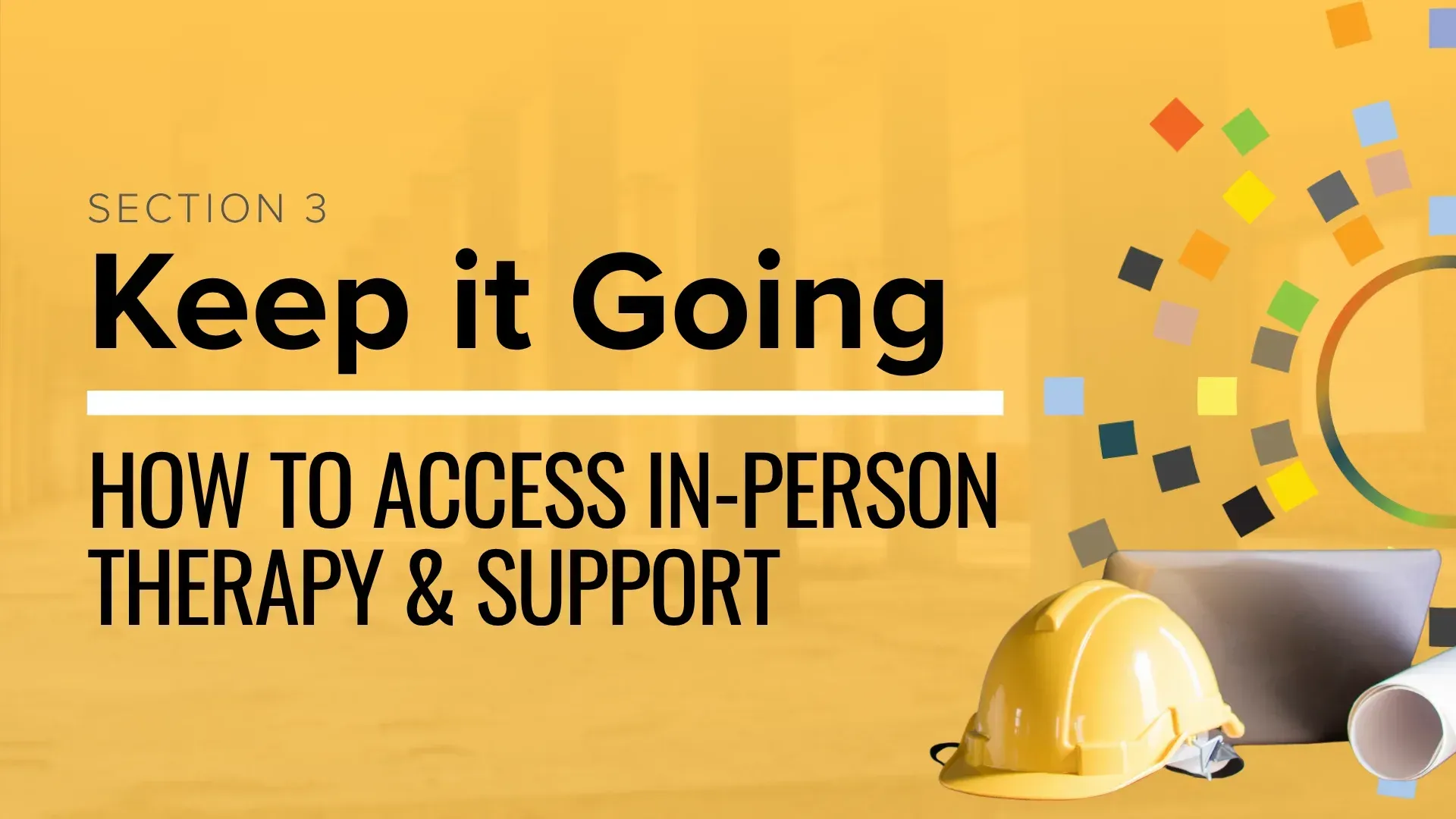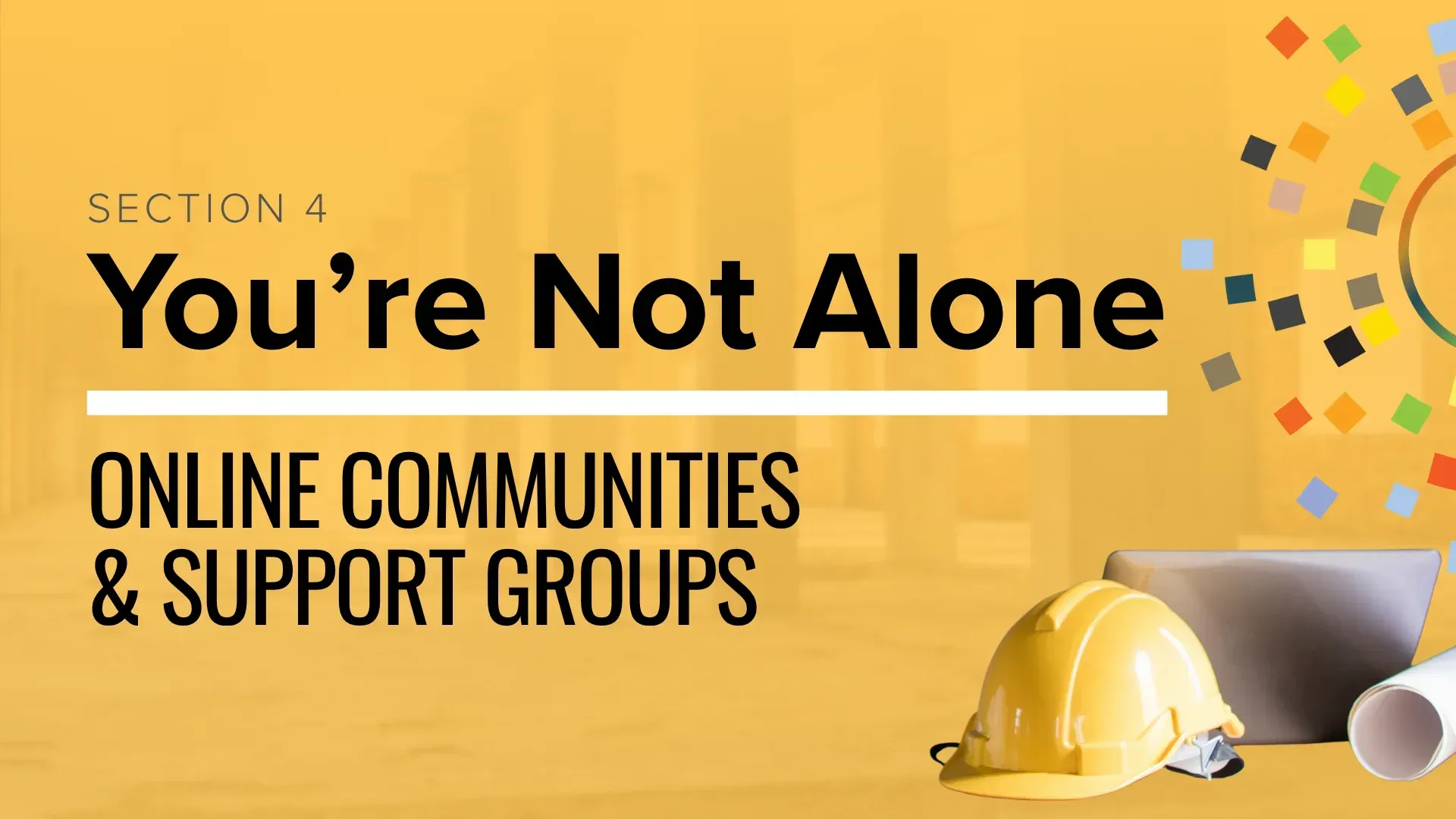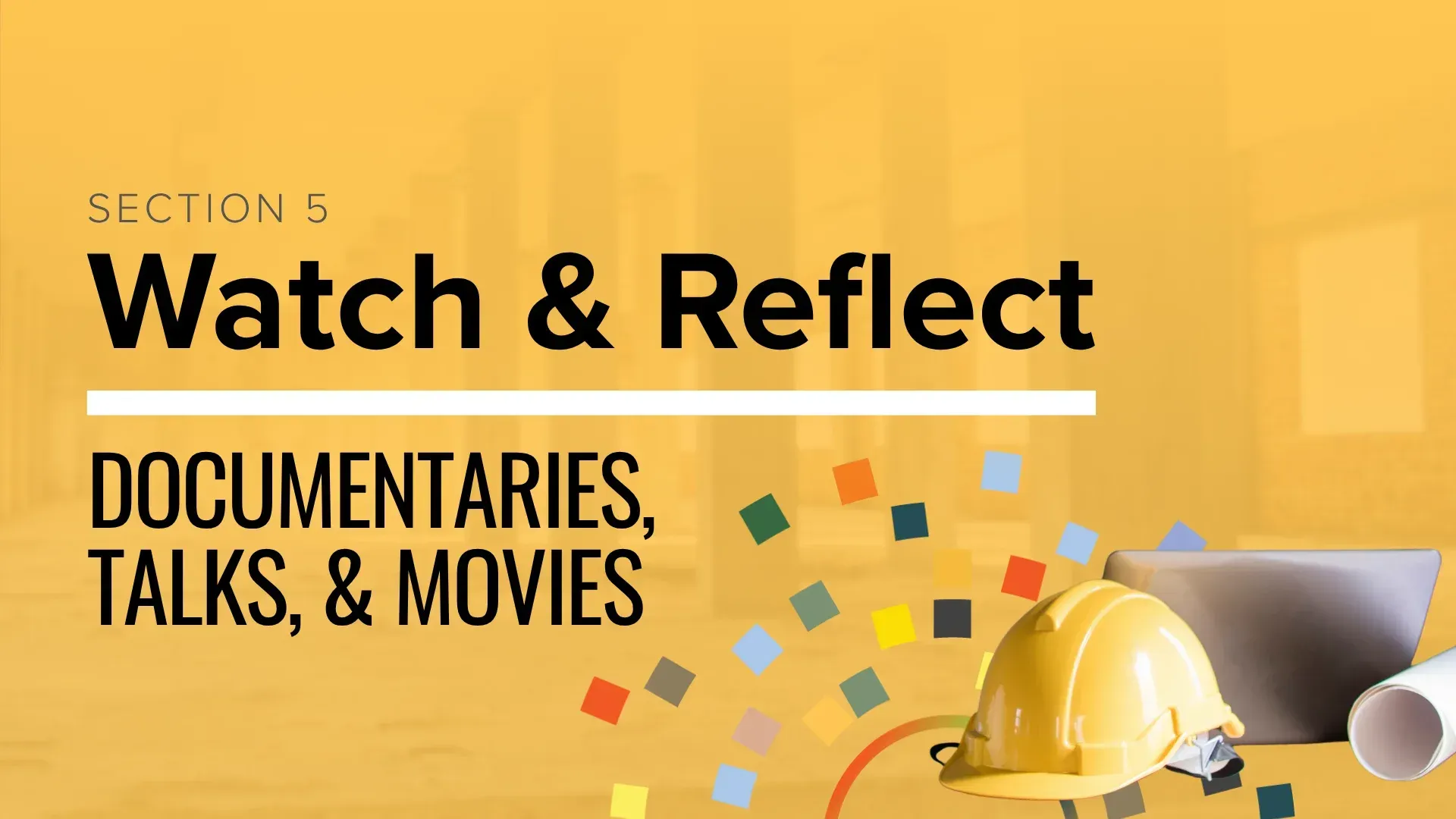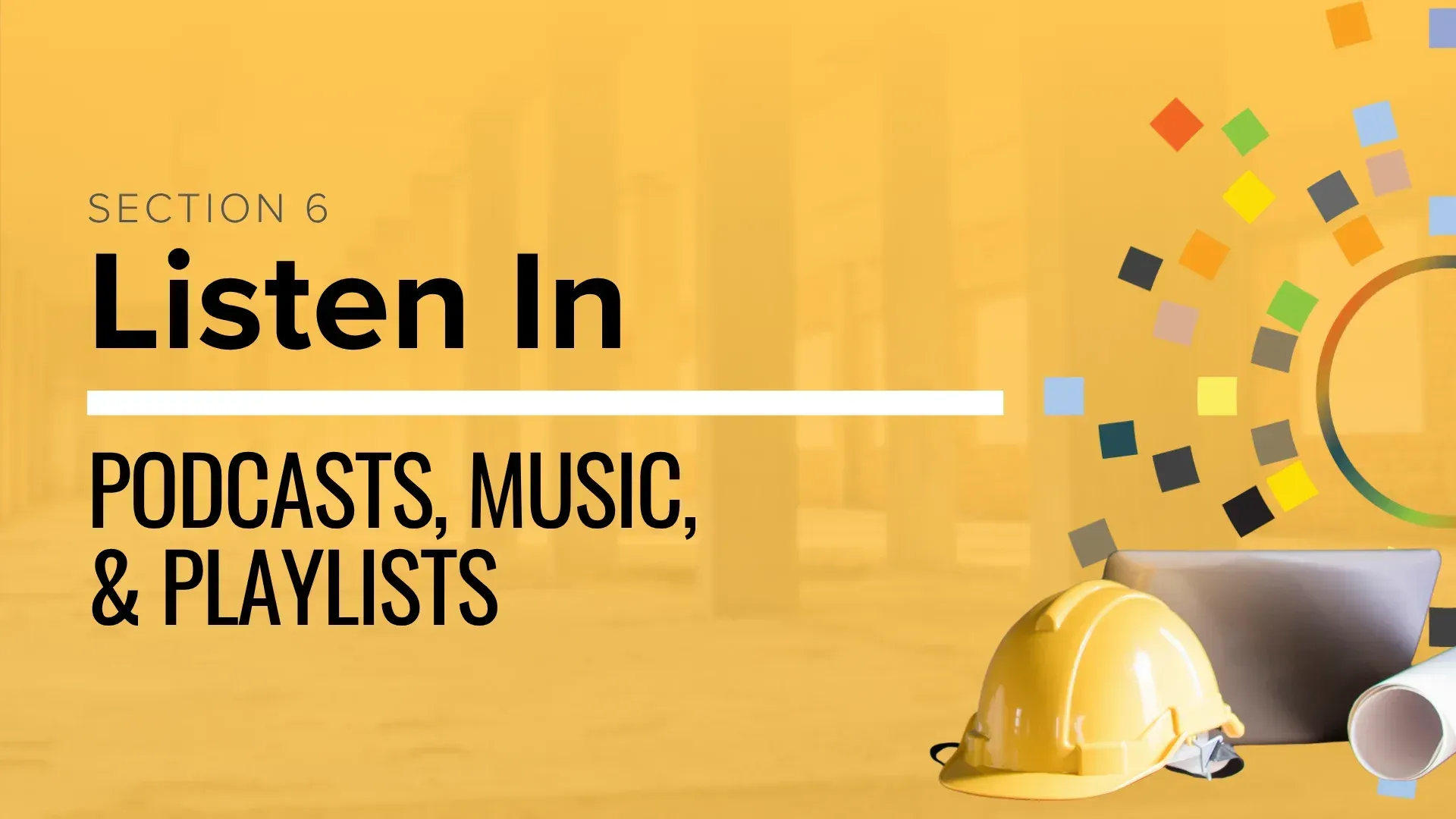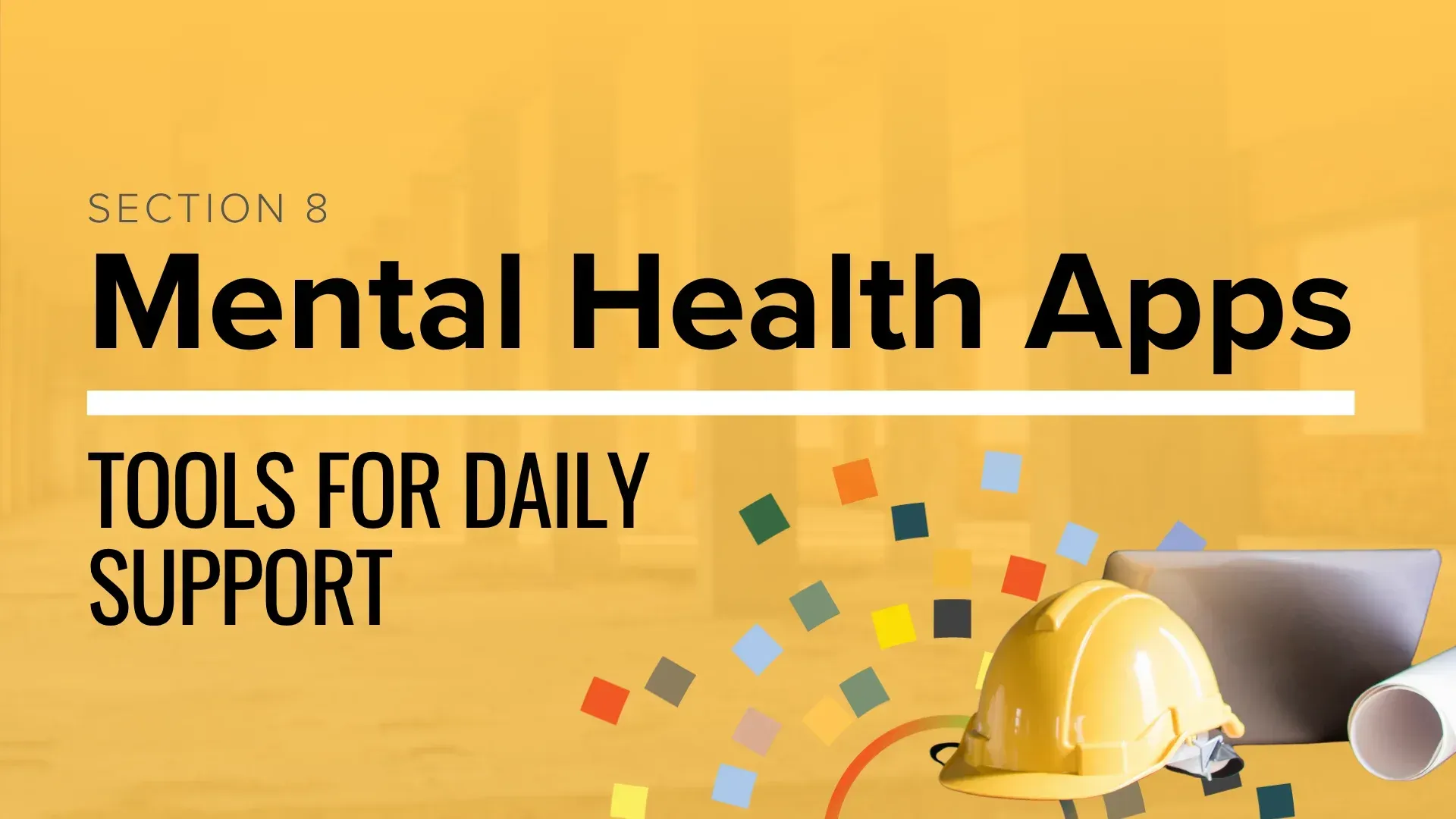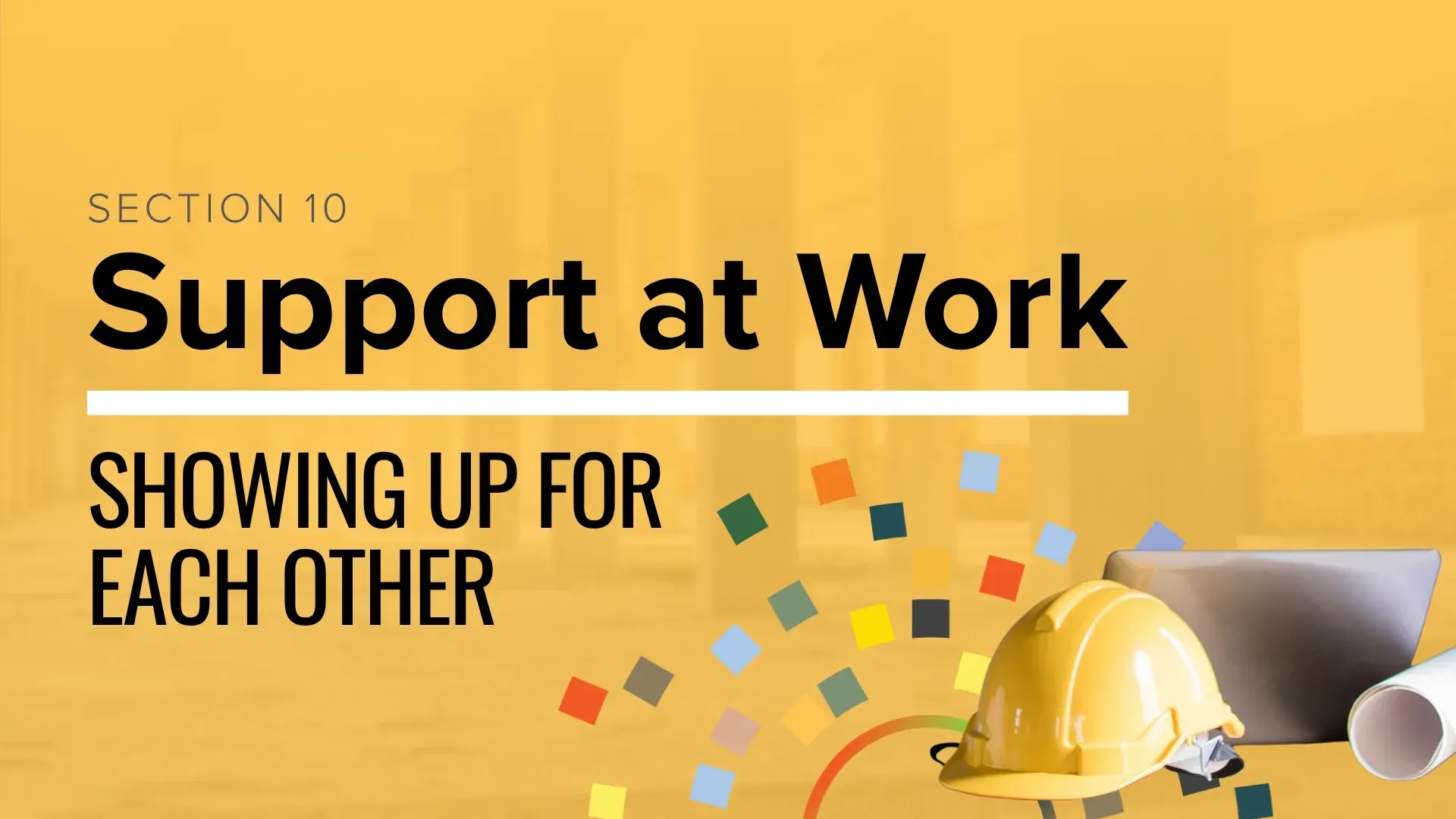Construction Inclusion Week Mental Health Resources: Section 9
Mind & Body: Movement, Breath, & Balance
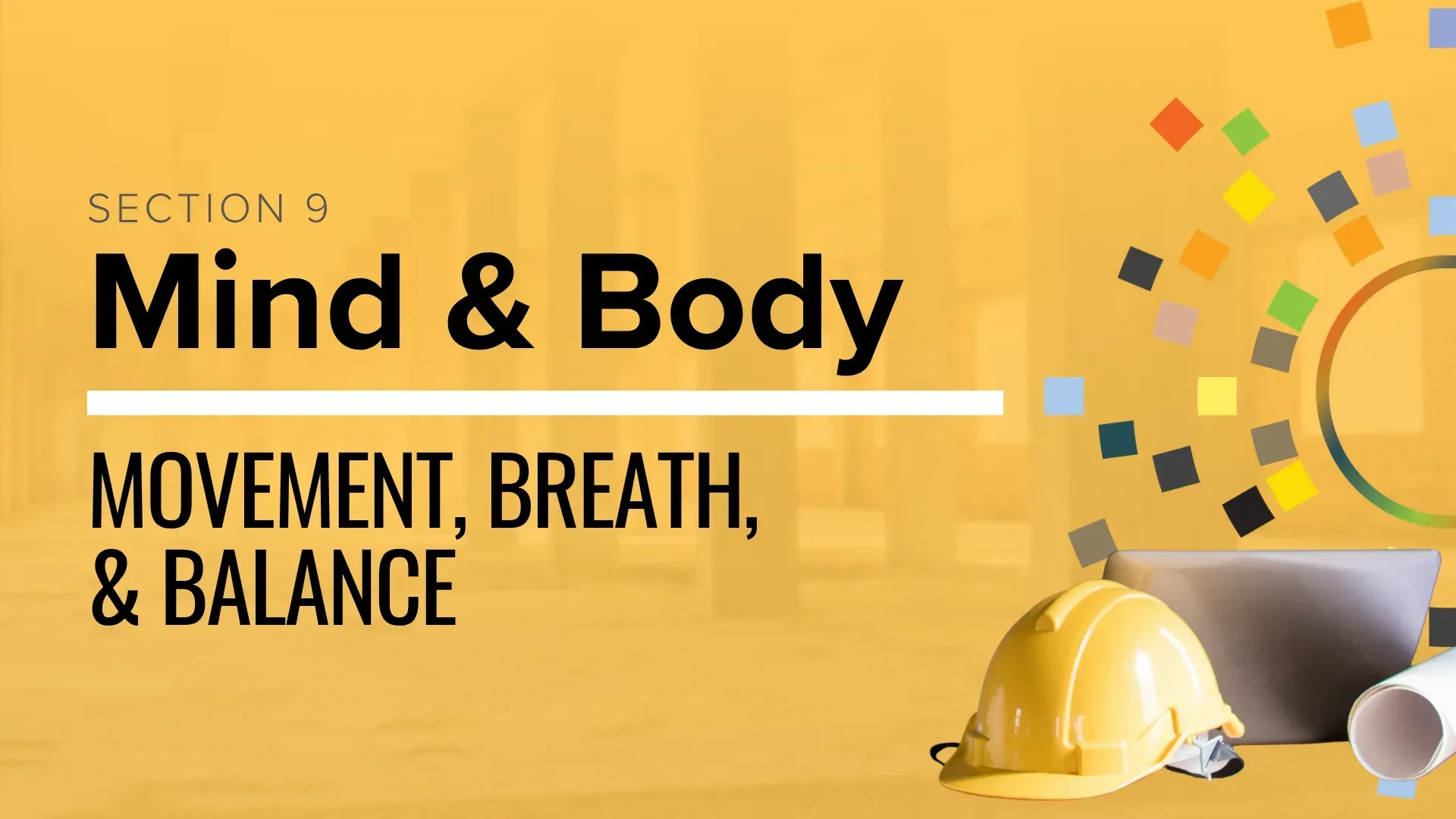
Incorporate brief yet impactful practices into your daily routine, enhancing your mental health through movement, breath, and balance.
In the hustle and bustle of daily life, it’s easy to overlook the importance of small, intentional actions that can significantly impact your mental health. Simple practices, often taking less than five minutes, can help you reset your nervous system, reconnect with your body, and re-center your mindset. Whether you’re at your desk, in a trailer, in the car, or at home, these quick exercises can serve as powerful tools for grounding yourself and enhancing your emotional well-being. By integrating these practices into your day, you can cultivate a greater sense of balance and resilience.
Get Started
Explore Further
The Power of Movement
Movement is a fundamental aspect of our well-being, and even small bursts of physical activity can have profound effects on mental health. Engaging in brief movements, like stretching, walking, or simple exercises, can release endorphins, reduce stress, and improve mood. These actions help to break the cycle of tension that often builds up during the day, allowing you to feel more energized and focused. By incorporating movement into your routine, you create a physical outlet for stress and anxiety, promoting a sense of clarity and calm.
Breath as a Tool for Centering
Breath is a powerful tool for regulating emotions and calming the mind. Simple breathing exercises can help you reconnect with your body and create a sense of balance. Techniques such as deep breathing, box breathing, or even just taking a moment to focus on your breath can activate the body’s relaxation response, reducing feelings of anxiety and promoting mental clarity. By practicing mindful breathing, you can cultivate a greater awareness of your thoughts and feelings, allowing you to respond to stressors with intention rather than reaction.
Finding Balance in Daily Life
Incorporating small practices into your daily routine can help you maintain balance amidst life’s demands. These brief moments of self-care serve as reminders to pause, reflect, and reconnect with yourself. Whether it’s a few minutes of stretching at your desk, a quick walk during a break, or a moment of focused breathing before a meeting, these practices can create a sense of stability and resilience. By prioritizing these small actions, you empower yourself to navigate challenges with greater ease and cultivate a more balanced approach to life.

Resources
Whether you're assessing your emotional foundations, connecting with immediate support, or seeking professional guidance, the following resources work alongside your strengths to keep you strong on and off the job.
BREATH & AWARENESS
Box breathing: inhale for 4 seconds, hold for 4, exhale for 4, hold for 4. Repeat.
5 Deep breaths: inhale deeply into your belly. Exhale slowly.
Repeat five times.
Name 3 things you hear: helps break racing thoughts and shift to the present moment.
Silent 60: one minute of quiet breathing. Eyes closed. Hands relaxed. Body scan: close your eyes and mentally scan from head to toe. Where are you holding tension?
Sigh it out: take a deep breath in and exhale with an audible sigh. Repeat. Your body will understand the
signal to release.
MOVEMENT & PHYSICAL RESET
Neck rolls: slowly circle your head to release shoulder and jaw tension.
Shoulder shrugs: shrug up, hold, release. Repeat three times.
Wrist circles: great if you’ve been holding tools, typing, or texting.
Toe wiggles: a surprising way to reconnect with your body. Try it with shoes on or off.
Wall stretch: press your palms into a wall and lean in. Opens your chest and breath.
Stand tall: plant your feet, lift your chin, pull your shoulders back. Power pose.
Walk to reset: one slow lap around your space — no phone. Just walk and breathe.
Shake it out: arms, legs, shoulders — release pent-up tension with a full-body shake.
Touch something cool: a coffee cup, desk surface, wall — a sensory way to ground your body.
GROUNDING ®GULATION
Drink a full glass of water: hydration supports mood, energy, and attention.
Wash your hands slowly: pay attention to temperature, texture, and motion.
Step outside for fresh air: one minute in natural light can shift your internal state.
Notice 5 blue things: visual grounding helps reset focus and pull you into the present.
Run cold water on your wrists: calms the nervous system — especially useful during panic or overload.
Put your hands on your heart: notice your heartbeat. Feel the rhythm of being alive.
Grip something with intention: hold onto a sturdy object — a railing, your seat, a cool bottle. Feel the stability in your hand.
Notice one scent: coffee, lotion, fresh air — scent is a direct line to calming the nervous system.
Look at something still: watch a tree, cloud, or object that isn’t moving fast. Let your brain take a visual break.
PRESENCE & GRATITUDE
Say one thing you’re grateful for: aloud or silently. Doesn’t need to be profound — just real.
Notice what feels ok right now: not perfect — just okay. Anchor in what’s working.
Repeat a centering phrase: “this moment is temporary.” “I’ve survived every hard day so far.”
Check in with your body: ask: what do I need right now? Food? Movement? Quiet?
Smile gently — even if you don’t feel like it: facial feedback loops can help your nervous system soften.
Go tech-free for 1 hour: let your mind reset from constant alerts and inputs.
Write down 3 things you’re proud of: acknowledgment is self-support. Small wins matter.
Name a tiny joy from today: a good song, warm socks, a moment of quiet. Small joys anchor you to life.
Revisit a compliment you’ve received: let it land again. You earned it then — it still counts now.
CONNECTION & COMMUNITY
Text a friend and ask how they’re really doing: a check-in can change someone’s day — or yours.
Share a resource from this guide with someone: pass it on. Someone in your circle may really need it.
Tell a coworker they’re doing a good job: be specific. ““Hey, I saw you handle that — nice work.” Uplifting others builds resilience in you, too.
Ask someone what they’re looking forward to: a question that invites connection and optimism.
Say thank you with eye contact: a moment of sincere appreciation goes a long way.
Wave or nod at someone today: a tiny moment of human recognition — it matters more than it seems.
Ask: “need anything?” — and mean it: a powerful, simple phrase that opens the door without pressure.
Personal Assessment
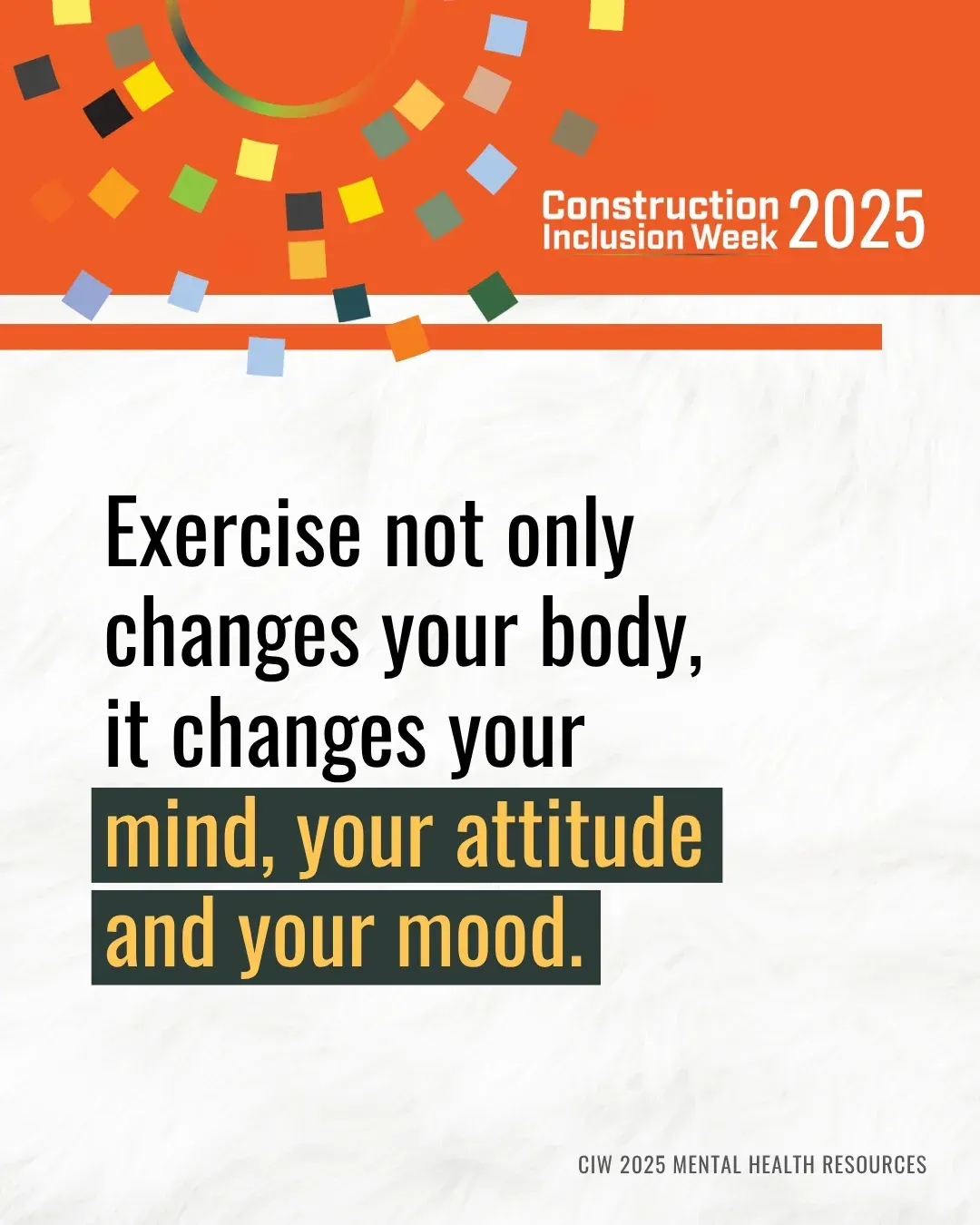
Gentle Prompts for Reflection
How often do I take short breaks to move or breathe during my day?
What simple practices have I found helpful in the past for managing stress?
How can I incorporate movement or breath exercises into my daily routine?
What physical sensations do I notice in my body when I’m feeling stressed or overwhelmed?
In what ways can I create a more balanced environment for myself, both physically and mentally?
Quotes for Reflection
“Movement is a medicine for creating change in a person's physical, emotional, and mental states.” — Carol Welch
“Breath is the bridge which connects life to consciousness, which unites your body to your thoughts.” — Thich Nhat Hanh
“The body is a sacred garment.” — Martha Graham
“Balance is not something you find; it’s something you create.” — Jana Kingsford
“The greatest weapon against stress is our ability to choose one thought over another.” — William James




